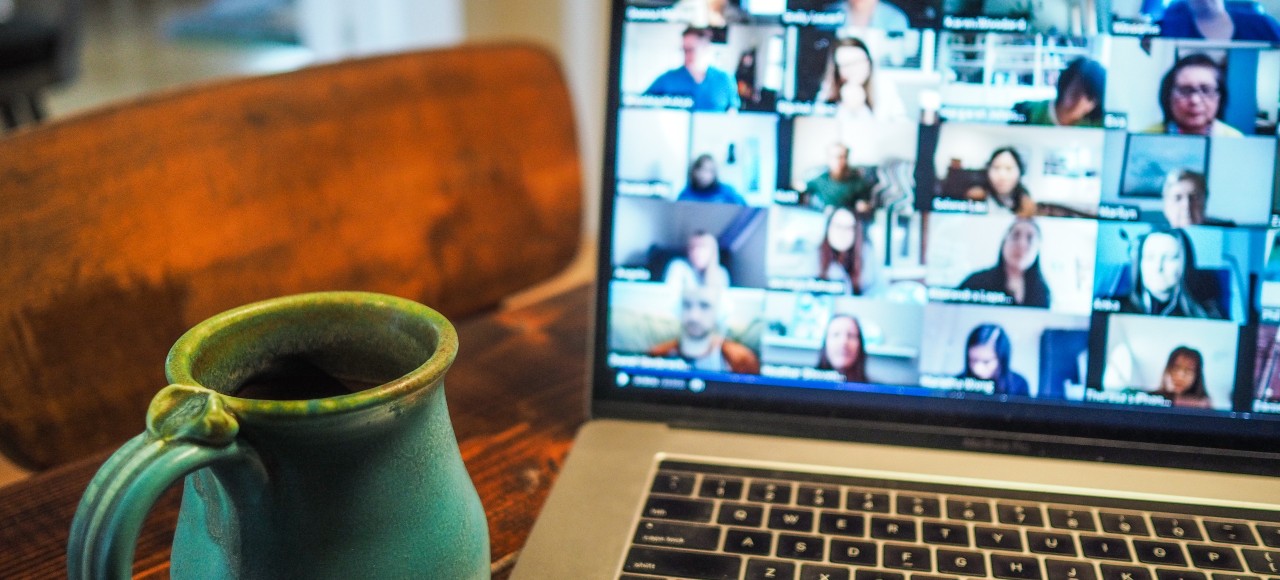
Reflections on the spring semester's online teaching
The spring semester in 2021 was, as the year before, marked by the COVID-19 lockdown. Most of the teaching was online, and only the laboratory teaching was conducted almost as usual.
In hope of gaining some important experience, we have looked at the general messages from the course evaluations that were made and processed by the study board from the spring semester. In the following, we review the main trends.
What do the students say?
The students have been very understanding of the conditions. They generally express satisfaction with their teachers and, not least, give praise for an extra effort to the many freelance instructors and others that they have met in the teaching.
However, there is no doubt that the students have missed the "real-life" experience. Online teaching is experienced as more "boring" than teaching on campus, and the interacting with the teacher and fellow students is simply more difficult. In quite a few cases, online group work does not work particularly well. For example, it was difficult to get started with a constructive collaboration. It is generally clear that many students have been very affected by the isolation, which is also seen in various study environment studies.
Nevertheless, many students express that video-recorded teaching - first and foremost recorded lectures - is something they would like to see more of, even after the lockdown period. It gives flexibility to be able to access a video and watch it several times, also in connection with preparations for exams. However, some students point out that recorded lectures provide poorer opportunities for communicating with the teacher.
Some teachers are praised for having changed the teaching format to a more "flipped classroom" concept, where the videos are posted as preparation, followed by more dialogue-based teaching sessions.
What do the teachers think?
The idea of recorded lectures gives rise to a lot of debate among the teachers and at the departments – a debate that is going on in several Danish university environments and to some extent also in the press.
Many teachers are hesitant about recorded lectures, for both educational and personal reasons. Some are concerned about the fault-finding culture and others feel it is a definite stress factor to be recorded on video. From a pedagogical point of view, many teachers are concerned that students see the video lectures as the most important teaching element and will prioritise more views of these, rather than studying textbooks and working on assignments. Finally, many teachers are concerned about the attendance in the on-campus teaching and about losing the interaction with the students that they, after all, have the opportunity to have in the auditorium.
Some educators, on the other hand, are completely unconcerned and eager to take advantage of new technologies, including video and other online tools in new teaching concepts.
What does the study management think?
There is no doubt that online teaching, including recorded teaching, can be used for many things that go beyond a lockdown period. It can be in connection with, for example, continuing education, where students have a full-time job aside from studying. It can also be in a teaching concept, as mentioned above, where videos are seen as part of the students' preparation for the actual and more dialogue-based teaching. As study management, we will support this.
However, there is also no doubt that we must never replace all or part of the teaching with "passive" video teaching without at the same time thinking about how active learning should take place. Despite the consistent one-way communication, even large lectures provide, after all, the opportunity for interaction and a sense of community that we believe is essential to the study environment. Finally, the teachers' working environment is also very important to us, and on this basis we will not require the teachers to take up their normal teaching.
However, it is very clear that the long lockdown has both pushed our perception of good teaching and set in motion new innovation in education. The future will show how it will affect the science education programmes.
Yours sincerely
Head of Studies Finn Kirpekar and Vice Dean for Education Poul Nielsen